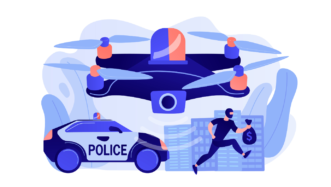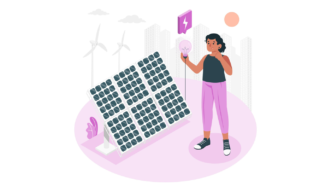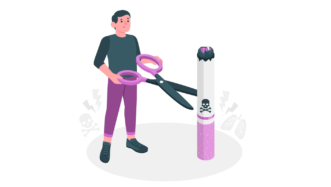LESSON OVERVIEW
This lesson plan is our another attempt at using an animated video for teaching. The lesson plan is based on a video by Steve Cutts “Happiness” and it tells a story of our modern society focused on pursuing happiness through buying more and more. The wonderful video which inspired us to create this consumerism lesson plan was recommended by Anastasia O., one of our members.
B2 / Upper Intermediate75 minStandard LessonUnlimited Plan
WORD FORMATION
This consumerism lesson plan starts with one activity which will make your students focus on two things: word formation and discussion. First, students have to complete a set of quotes concerning happiness, fulfillment and consumerism with correct forms of words given. Next, when they finish, check the answers and ask students to discuss the quotes. All of them are a nice intro to the video and give students a clue to what the video is about.
VIDEO – HAPPINESS BY STEVE CUTTS
As this animated video is without any voiceover, we’ve decided to not include any “listening for details” comprehension questions, but rather make students summarize what they see. In the video-related exercise, students get the beginnings of sentences which will help them summarize the contents of the video. You can play the video twice and ask your students what they’ve noticed (any words on the screen, modified companies’ logos, etc.). There are a lot of things hidden in the video, so if you want to prepare beforehand, you can read this article.
VERBS + DISCUSSION
Next, students move to a vocab task on verbs which will make it easier to talk about consumerism and pursuit of happiness in our lives. Therefore, students get six sentences. Each of them have two gaps. Students have to complete the sentences with correct forms of the pair of verbs given. After checking the answers, you can move onto the discussion. We’ve created questions which include words that have appeared throughout the worksheet. It means that students will have an opportunity to practise using newly-learnt vocabulary.
The discussion part is rather general and does not concentrate a lot on the video. However, if you want (and have more time), you can ask your students more video-related questions as well!
Let us know in the comments what you think about the video and our interpretation in this consumerism lesson plan!
EXTRA WORKSHEET – Happy/Sad Idioms
We’ve created an extra task loosely related to the video. Its goal is to teach 8 idioms about being happy or sad, such as ‘be over the moon‘, ‘sb’s heart sank‘ or ‘go to pieces’. There are 4 tasks all together in which your students will discover new idiomatic expressions and practise using them both in speech and in writing. You can find that here. We personally used that worksheet also as a standalone vocabulary extension worksheet and with our other lesson plan about happiness: How to buy happiness.
WORKSHEETS
Subscribe to unlock these and many other Standalone lesson lesson plans with the Unlimited plan
Subscribe













This is a very informative post and i thank you sharing it with us.
Thanks 🙂 Happy to hear that you like it!
I’d like to thank you guys for the great job you both do in the webpage. I used this activity (a bit readapted) to my CAE group and it was awesome.
Great to hear that! Thank you!
There are 2 titles for this lesson, on the webpage tab it is Happiness VS Consumerism, and on the printouts it is Happiness in the 21stcentury feat.Happiness by Steve Cutts
Thanks for the comment! We’ve just changed the worksheet title so that it is consistent with the lesson post title.
very good
The link to the article about the video isn’t working for me
Thanks for letting us know – it’s fixed now! The website changed the URL to their article but I can see now that some images are broken there so you can only read about these hidden symbols and need to find them yourself 🙂